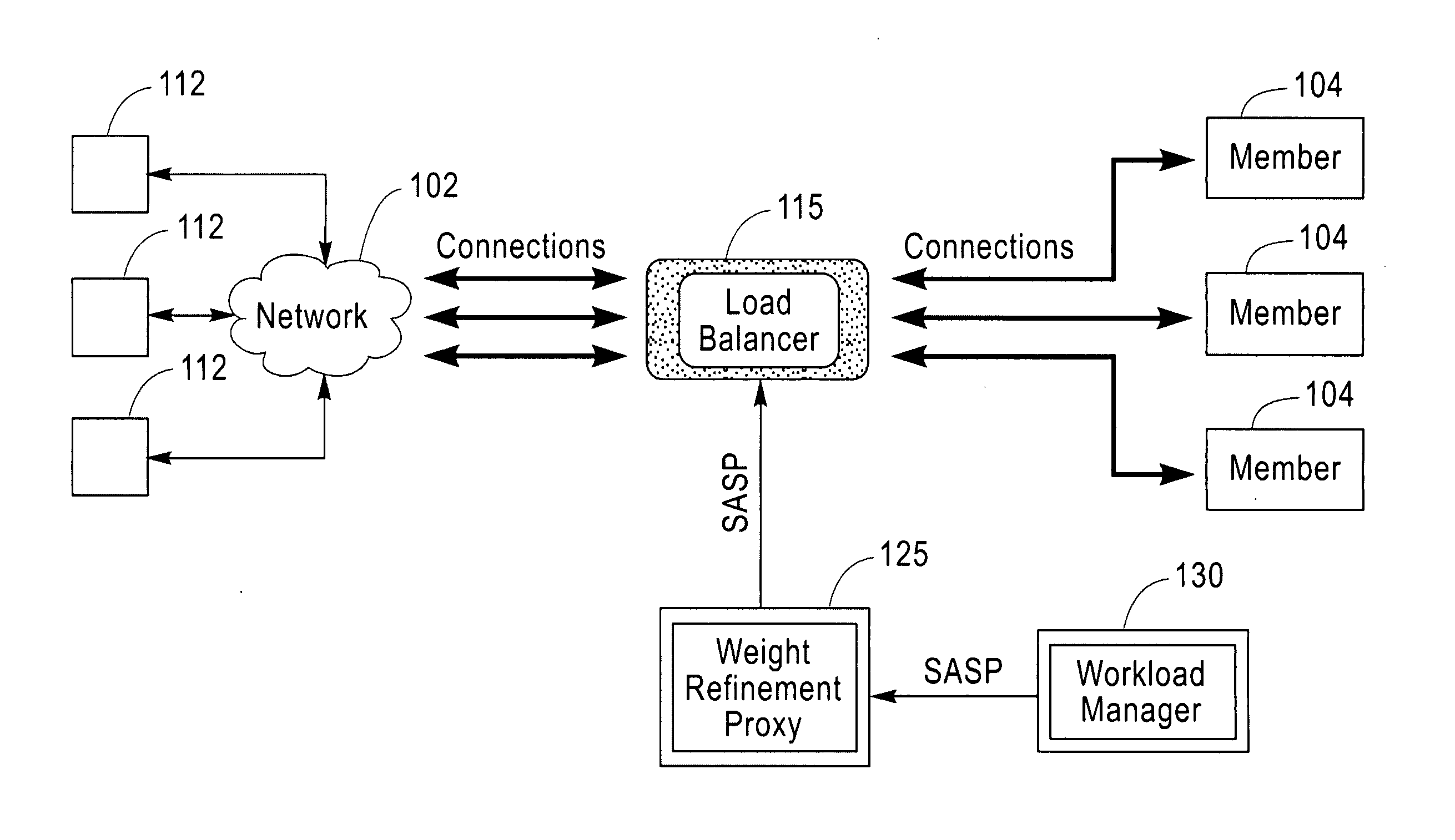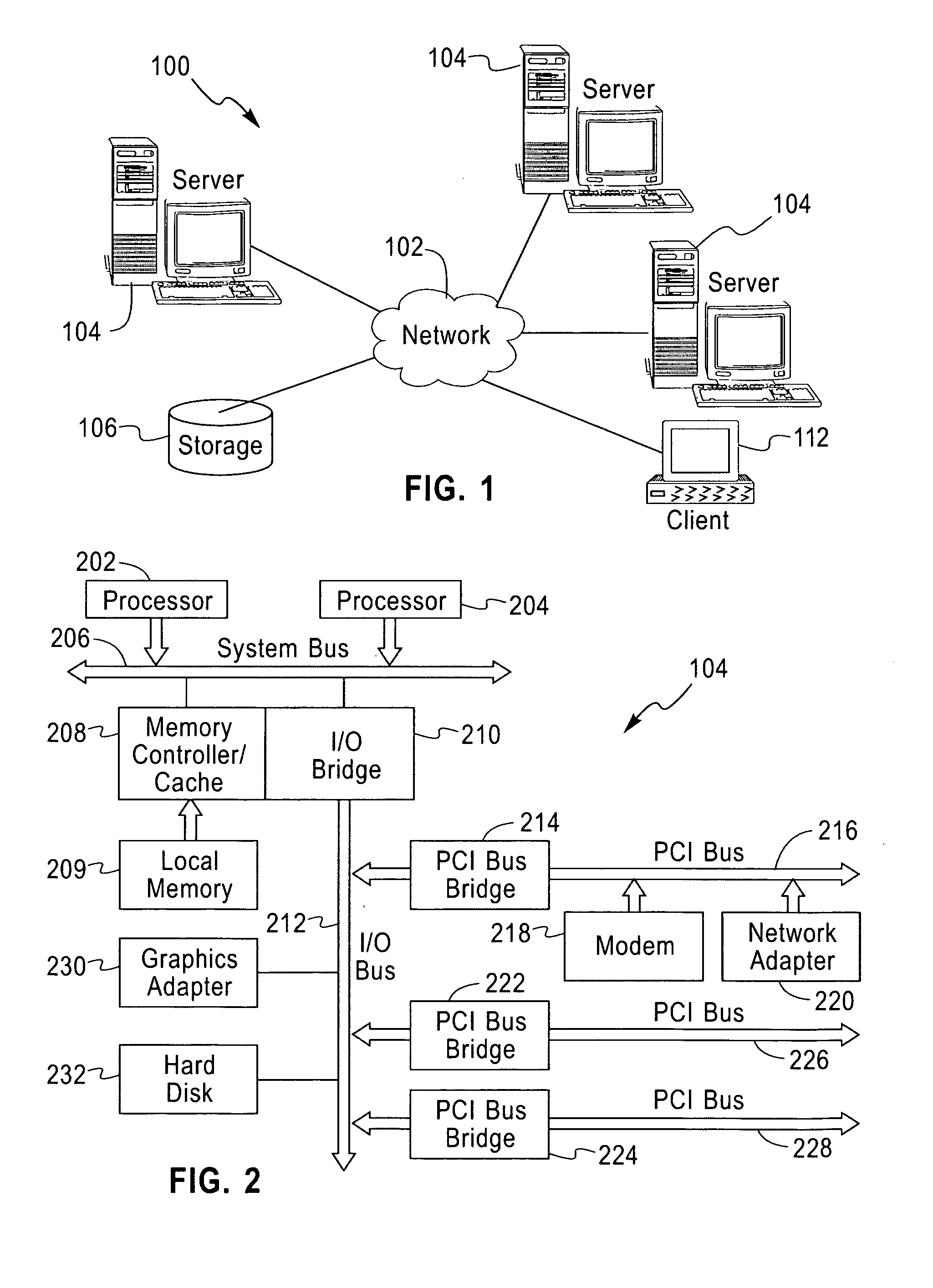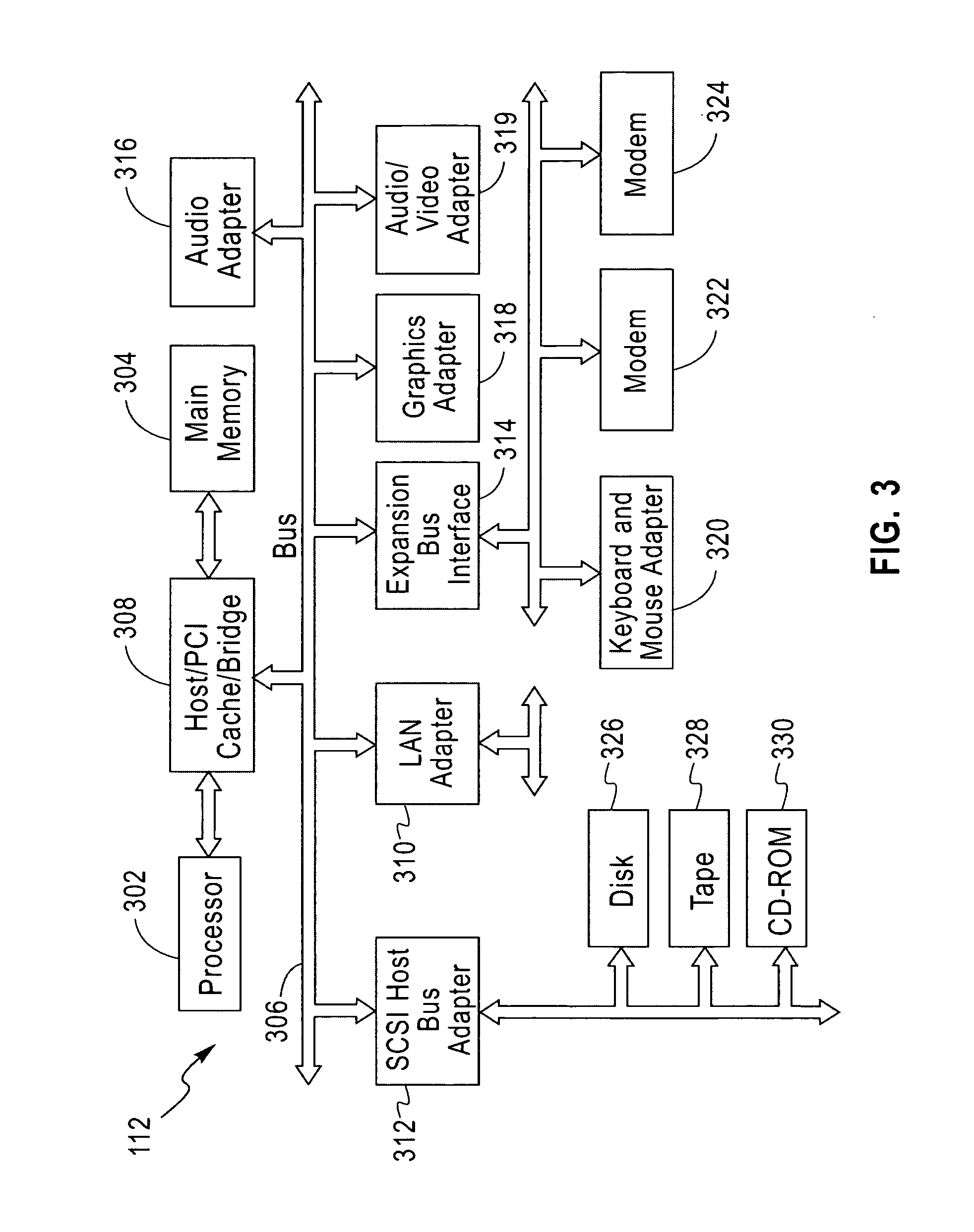Method for reducing variability and oscillations in load balancing recommendations using historical values and workload metrics
a load balancing and workload metric technology, applied in the field of load balancing recommendation reduction, can solve the problems of heavy weighted parts or applications, heavy weighted measurements, and oscillating behavior, so as to prevent harmful variability and oscillation, reduce weight, and reduce weight.
- Summary
- Abstract
- Description
- Claims
- Application Information
AI Technical Summary
Benefits of technology
Problems solved by technology
Method used
Image
Examples
Embodiment Construction
[0020] The description of the present invention has been presented for purposes of illustration and description, and is not intended to be exhaustive or limited to the invention in the form disclosed. Many modifications and variations will be apparent to those of ordinary skill in the art. The embodiment was chosen and described in order to best explain the principles of the invention, the practical application, and to enable others of ordinary skill in the art to understand the invention for various embodiments with various modifications as are suited to the particular use contemplated.
[0021] The present invention is directed to a mechanism for performing load balancing of requests to application instances on one or more server computing devices. These requests may be generated by other servers, client computing devices, or other computing devices that may act as sources of requests for application resources on a server computing device. As such, the present invention is especiall...
PUM
 Login to View More
Login to View More Abstract
Description
Claims
Application Information
 Login to View More
Login to View More - R&D
- Intellectual Property
- Life Sciences
- Materials
- Tech Scout
- Unparalleled Data Quality
- Higher Quality Content
- 60% Fewer Hallucinations
Browse by: Latest US Patents, China's latest patents, Technical Efficacy Thesaurus, Application Domain, Technology Topic, Popular Technical Reports.
© 2025 PatSnap. All rights reserved.Legal|Privacy policy|Modern Slavery Act Transparency Statement|Sitemap|About US| Contact US: help@patsnap.com



